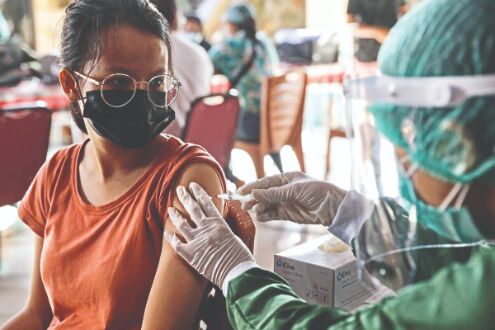Now, a helpline for medical needs of women in city

New delhi: A group of volunteers operating a COVID-19 helpline during the 2nd wave found that despite their best efforts, medical help was unable to reach women. So, on June 5, a separate 'Janani' Health Helpline was launched to address the challenges of women's healthcare during the pandemic.
The initiative is a joint-effort by Project StepOne, IHW Council, Ujala Cygnus group of hospitals, and senior gynaecologists, and focuses on COVID-19 care, pregnancy issues, OBGYN help, nutrition, and infant care.
"Very often women already suffer from poor access to healthcare, hesitate to discuss personal medical issues, are often not allowed to step outside the home, and do not have the financial independence to seek medical help for themselves", said Dr Shuchin Bajaj, Founder Director Ujala Cygnus Hospitals, and a core member of StepOne, which is a volunteer-run community of doctors and citizens providing free telemedicine services for COVID-19 patients.
"We tied up with 20 state governments throughout the COVID-19 pandemic and found that women barely had any representation. Forget discussing gynaecological or obstetric issues, even for COVID-19, a family member would usually be talking or making decisions about a woman's health problems, as if she couldn't speak for herself". This is where the need for a dedicated health helpline for women arose.
Women can call on the helpline number (9739693300) and they will be connected to an IVR (Internet Voice Response) and asked about their age group, basic query, and then raise a ticket for their call. This is then sent to an available (volunteer) doctor, who then calls the patient back.
However, the phone numbers of either party remain protected. Once the doctor has spoken to the patient and advised them verbally, a detailed consultation is sent to the patient (such as treatment plan, prescriptions, etc.).
In the Delhi NCR region, calls started coming in rapidly and not just from migrant workers such as daily-wage labourers and domestic workers but also from residents who were hesitant of going to hospitals either due to high costs and wait times or due to fear of infection.
"Some issues that we were prepared to help with were period-related problems in younger women, such as missed periods or heavy flow. In older women, prolapse of the uterus is a common issue which they are very hesitant to speak about, especially with the men in their families, so we are getting a lot of calls regarding that.
"What we didn't expect was to receive so many calls from mothers regarding nutrition, vaccination or other health concerns regarding infants. This is something we missed and we forgot that mother and child are almost the same organism, especially in the first stages of infancy. We've received queries about pediatrics also, which we had not anticipated", Dr Bajaj said.



